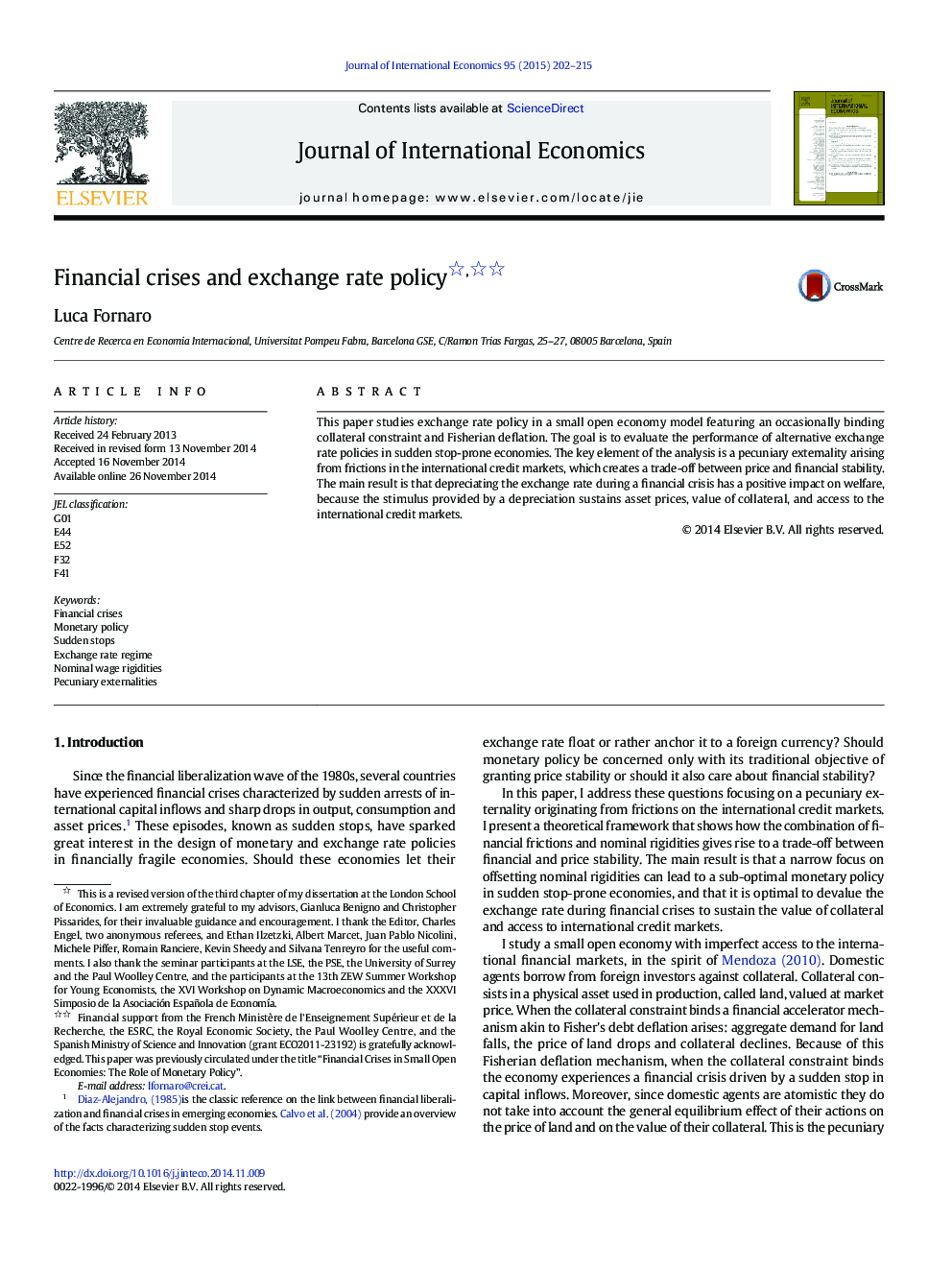| Article ID | Journal | Published Year | Pages | File Type |
|---|---|---|---|---|
| 10477337 | Journal of International Economics | 2015 | 14 Pages |
Abstract
This paper studies exchange rate policy in a small open economy model featuring an occasionally binding collateral constraint and Fisherian deflation. The goal is to evaluate the performance of alternative exchange rate policies in sudden stop-prone economies. The key element of the analysis is a pecuniary externality arising from frictions in the international credit markets, which creates a trade-off between price and financial stability. The main result is that depreciating the exchange rate during a financial crisis has a positive impact on welfare, because the stimulus provided by a depreciation sustains asset prices, value of collateral, and access to the international credit markets.
Keywords
Related Topics
Social Sciences and Humanities
Economics, Econometrics and Finance
Economics and Econometrics
Authors
Luca Fornaro,
